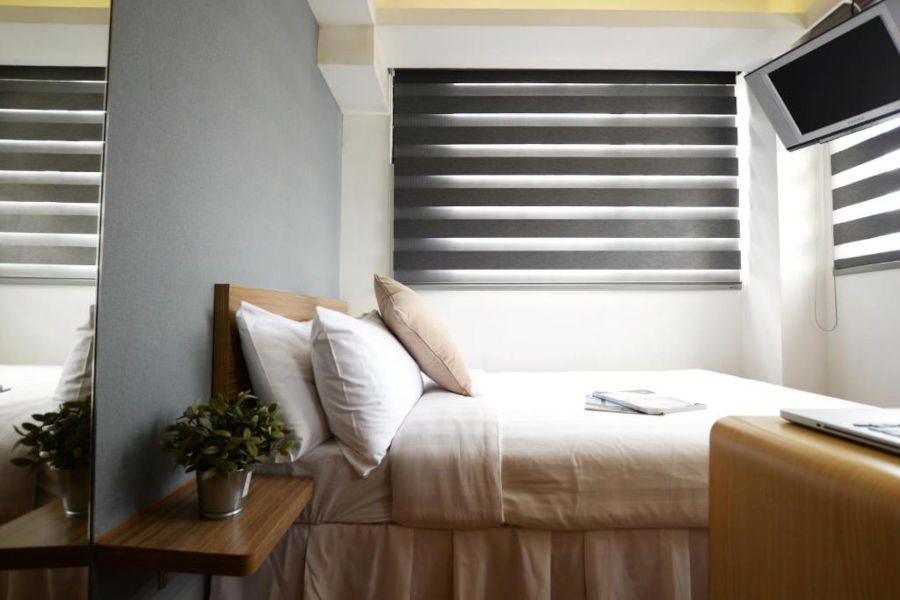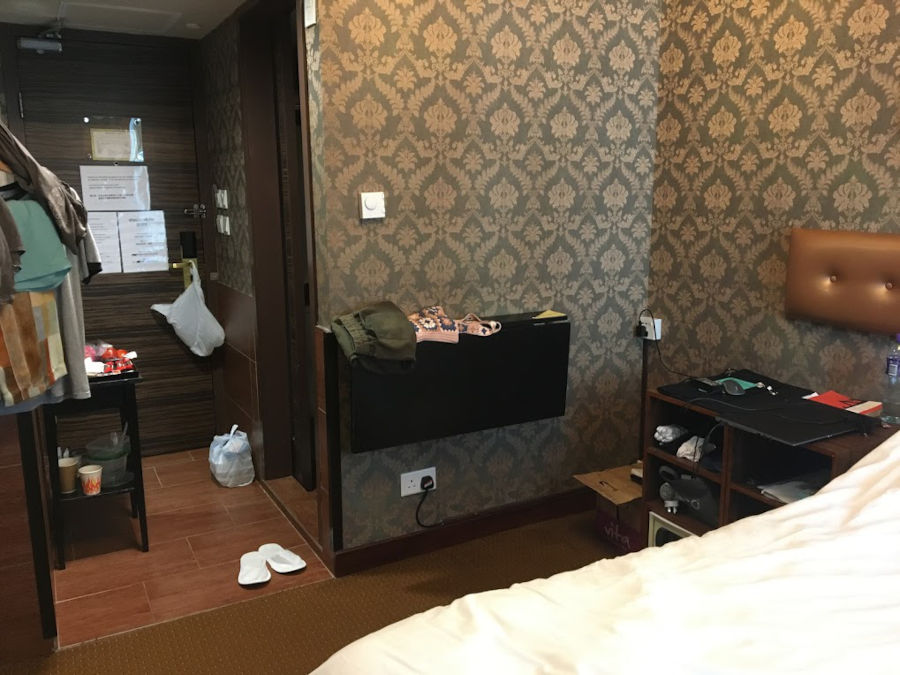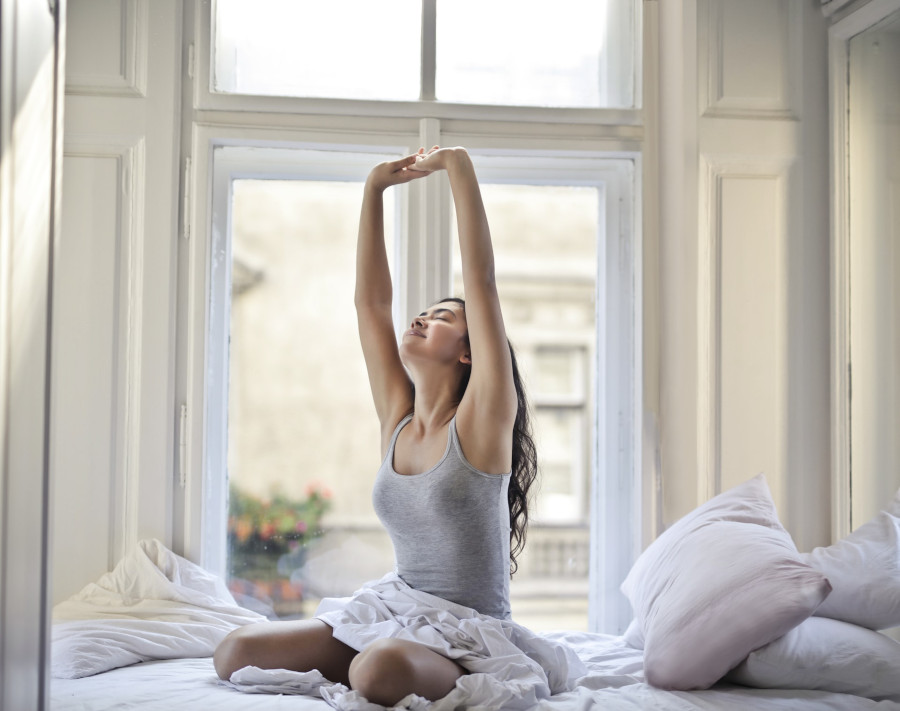When Hong Kong introduced the maximum quarantine period of 21 days in a designated hotel in December 2020, it was the longest quarantine required anywhere in the world. With daily cases staying under 50 since March, people in Hong Kong are questioning the government’s decision to maintain the 21-day mandate, especially with more and more stories coming out of lingering anxiety, post-traumatic stress disorder, depression, and insomnia after undergoing 2- and 3-week quarantines.
Judith Blaine, a research associate in the psychology department at Rhodes University, published a paper in the Psychology and Behavioral Sciences journal in May delving into the psychosocial effects of Hong Kong’s mandatory hotel quarantine. One of the first studies to treat the topic of the experiences and psychosocial conditions of quarantiners following the extensive isolation, the paper, titled “Exploring the Psychosocial Consequences of Mandatory Quarantine During the COVID-19 Pandemic in Hong Kong” utilizes surveys and semi-structured interviews to evaluate the mental state and coping behaviours of quarantiners during and after quarantine, attitudes towards the government’s policymaking process, and how the negative mental and emotional effects of one of the world’s longest quarantines could be mitigated.
Through an analysis of Blaine’s explorative study, among the first to emphasize the lived experiences of quarantiners, as well as conducting interviews with two people who had vastly differing experiences of their 21-day quarantines (Nicole of wanderwithnicole, parent of a four member family and Hope, 14-year-old student), I want to shed light on people’s different emotional states, conceived and actual goals, and reflexivity about the overwhelmingly isolating experience.
How did Hong Kong’s quarantine rules come to be?
Hong Kong’s mandatory quarantine measures have become increasingly strict since they were first introduced in March last year. Initially, inbound travellers were required to quarantine at home for 14 days. This evolved into hotel quarantine in November 2020. The current maximum period of 21 days and designated quarantine hotel scheme were put into place two months later, with the former being announced on Christmas Day.
In August 2021, the stringent rules show no sign of loosening. The antibody test result, which gave people hope that travel and subsequently local restrictions were gradually returning to normal, offers even vaccinated travellers no respite from 2- and 3-week quarantines as of August 20. This gives Hongkongers even less incentive to get vaccinated, besides lucky draws and the obvious medical protection benefits.
What do we already know about extended isolation?
With a population of 7.5 million across just under 1,110 square kilometres, Hong Kong is one of the most densely populated places in the world. Of this area, less than 10% is designated for residential use, according to a 2016 Legislative Council report.
The smallest room on the fifth list of designated hotels clocks in at 10m². If you know anyone who has done quarantine or have done it yourself, you’re likely familiar with the notion that staying in one small place for an extended period of time can have a myriad of negative effects, some perhaps even long-lasting.

It has been found that extended periods of time indoors contribute to anxiety, depression, decreased sleep quality, and Vitamin D deficiency. Not ignoring the inhumane conditions of people forced to live in coffin homes in Hong Kong, people in quarantine experience conditions like these, having limited sun exposure due to the proximity of Hong Kong’s skyscrapers and lack of fresh air due to the majority of hotels prohibiting opening windows.
What we can learn from the new mental health study?

Blaine’s paper listed psychological consequences of quarantine identified in other studies, such as anger, fear, grief, numbness, confusion, insomnia, depression, and anxiety. She also found that participants suffered from physical effects such as muscle ache, brain fog, and exhaustion as well as loneliness, developing unhealthy coping mechanisms, and difficulty in social reintegration. A number of participants reported requiring medication and therapy long after the end of their quarantine.
Participants stated a desire for the government to provide a scientific rationale for the 21-day quarantine, pointing to the WHO’s shorter 14-day recommendation.
There were also practical financial concerns, with a participant stating their two-week reservation was equivalent to almost two months of rent.
The study found that factors like having a strong social network (such as the HK Quarantine Support Group on Facebook), regular contact with friends and family, and having a daily routine helped to alleviate subjects’ negative mental health effects. Some participants even identified positive aspects of their experience, stating that entering with a positive mindset was essential to coping well.
Blaine makes the following suggestions for future quarantine policymaking:
- That quarantiners are provided with access to health care and financial, social, and psychological support during and after quarantine;
- Emphasizing altruism as the basis for quarantining and exploring the possibility of making it non-mandatory, instead urging arrivals to self-isolate in the name of being prosocial;
- That governments follow an ethical framework for pandemic planning, which includes taking into account the opinions of those affected by the decisions, leaving decisions open to scrutiny, and giving stakeholders the opportunity to voice concerns.
Relating these learnings to personal experience
The findings of Blaine’s study are certainly echoed in my personal experience. I underwent the 21-day quarantine in July this year, during which I experienced consistent brain fog and numbness, developing habits of wine consumption, overworking into the late hours of the night, and mindless binging of food and entertainment to bridge the long moments.
Before starting quarantine, my goals were to work through my Chinese textbook and do personal passion projects. With so much time ‘to be filled’, there’s a sense that there can’t be a limit on the number of things you could fit into a day. After all, there aren’t the usual rhythms for commuting, running errands, sharing meals with others. Similarly, 14-year-old Hope, quarantining solo after returning from school in the UK, planned to learn Japanese during quarantine, but explains that while she felt the desire to do it, it always felt like there was enough time do it later.

I quickly realized that 15 hours being awake wasn’t the canvas of possibility I thought it was. I had a small room (12m²) which made it difficult to exercise. The limited space also meant there was a lack of physical and mental separation between working (time/space) and leisure (time/space). It was more beneficial for my mental health to let go of my expectations as my situation was not conducive to those goals.
There are certain rules that have been lauded as improving the 14 or 21 day quarantine, like maintaining a strict routine, partitioning the days into meaningful chunks for productivity, play, and social connection, and keeping a clean diet.

But what may be more important is finding what works for you or your group. Local business owner Nicole describes how trying to force a routine with her family’s 6 and 7-year-olds became more stressful than beneficial: “With kids, they live so in the moment. They don’t care if we’re doing ten thousand steps or not, they’re hungry.“
Letting the day unfold according to intuition could mitigate the feeling of failure towards reaching goals in quarantine. Explaining the shift away from a daily routine, Nicole explains how she and her partner “let the kids lead with what they want to do,” whether that was playing chess together or identifying brands of cars as they passed by.
The parents find that “making the most of the moment right now” helps keep everyone regulated and happy in a difficult situation.
Hope also cites setting appropriate expectations as helping her mindset during isolation. Asked what the quarantine hotel did well, she optimistically praises the provision of a mini fridge, unlimited water bottles, and the fact that the hotel allowed deliveries from outside. Nicole echoes this advice, stating the importance of being “mentally prepared” to comply with the quarantine rules as they are now, as harsh as they may be, not as they ideally may be later.
How do we cope with quarantine?

There is no correct or best way to do quarantine, but here are a couple of tips for solo quarantiners:
- Be mentally prepared to face the strictest rules currently in place
- Segregate the day into work and leisure slots; merely changing out of your pajamas can be a good mental switch
- Healthy body, healthy mind: exercise, meditate, eat a clean diet
- Make a list of films, documentaries, or books you’ve been meaning to finish
Here are tips specifically for quarantining families:
- Stock up on activities like puzzles, storybooks, colouring, or prop-free games you can take out whenever you need
- Temporary child tents are great for separating kids for quiet time when necessary
- Minimize screen time to make the most of family time
- Make space for allowing the children to do what they want to do, to an extent
There are so many people currently shut out of Hong Kong. I was grateful to be able to visit my family at a time when travelling is so coveted. Quarantine is not a wholly negative experience; as Nicole expresses it, “I’m really going to miss being together 24/7. […] Maybe it sounds sappy, but we do truly enjoy spending time together.” However, future quarantiners will likely benefit if these mental health effects from extended isolation, which are starting to be supported by scholarly evidence, were to be factored into future decisions about Hong Kong’s quarantine policies.
(Hope’s name has been changed to maintain privacy.)
Header image credits: Looma Agency via Bored Panda




Add comment